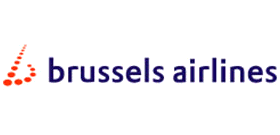 Brussels Airlines explains why it will no longer fly to Conakry and Ouagadougou
Brussels Airlines explains why it will no longer fly to Conakry and Ouagadougou
A 100% subsidiary of the German carrier Lufthansa since the end of 2016, the Belgian airline was struggling to make profits since it was founded on the ashes of defunct Sabena. Lufthansa, the leading airline group in Europe, already owned 45% of the shares of the Belgian company before 2016, with an option to buy the other 55%.
The buyout for the paltry sum of 2.6 million euros with the company’s debts, shows that before the outbreak of the Covid-19 pandemic which only accelerated things, Brussels Airlines had serious difficulties and that restructuring was necessary to avoid an outright bankruptcy of the company.
Asked yesterday morning about the situation by the Brussels-based Guinéenews editorial team, Ms Kim Daenen, press officer at Brussels Airlines explained: “As part of our Reboot recovery plan, which has been accelerated because of the consequences of the coronavirus crisis which greatly affected us, we decided to reduce our fleet from 54 to 38 aircraft. With regard to our long-haul fleet, we are decreasing from 10 to 8 Airbus A330s. As a result, we had to make difficult decisions about our network, based on the current and expected profitability of the routes for each destination, also taking into account the reduction of the long-haul fleet.”
Before clarifying: “the economic outlook is not favourable for our routes in Guinea and Burkina Faso. This, of course, has repercussions on the growth potential of the two stations (Conakry and Ouagadougou). After an in-depth analysis and in order to optimise the use of our planes, we, therefore, decided to suspend our operations to the two cities. ”
Brussels Airlines, however, considered the African continent as one of the profitable destinations because the low-cost airlines were not present there, so travellers to the black continent, in particular Guineans, hoped that the Brussels-Conakry link would be maintained.
But the arrival in 2019 in the Guinean airspace of the Portuguese company TAP Air Portugal with prices below 500 euros for a return trip Brussels-Conakry via Lisbon while the same journey with Brussels Airlines costs on average 1000 euros, arose a problem.
With the disappearance of Brussels Airlines in the Guinean sky, Air France will remain for the moment the only master on board with weaker competitors such as Royal Air Maroc (RAM) and TAP.
The many travellers from Brussels to the capital Conakry will probably have to pay more for their tickets with longer travel time and less advantageous conditions.
As for Air France, travellers will first have to go to Paris by train before boarding for Conakry from Charles De Gaulle airport. Difficulties were already reported by travellers passing through Paris with luggage arriving late at Conakry for the outward flight.
For the return flight, Air France returns the baggage to its owners once it arrives in Paris when they are not at their final destination. This created a lot of frustration and justified the choice of Brussels Airlines.
The Guineans of Benelux, the United Kingdom, Germany, and Spain who once flew to Conakry via Brussels will have to resort to courage and patience.
In Guinea, the disappearance of Brussels Airlines flights has consequences that Ms Daenen regrets: “Unfortunately, this change also means that we must end the contracts of 14 local colleagues.”
To this loss of 14 direct jobs for Guineans in Conakry, we must add the loss of indirect jobs linked to the various subcontractors.
The last Brussels-Conakry flight took place on March 19 and customers with valid tickets will receive offers from the company: “We are contacting customers affected by these flight cancellations and we offer them another solution,” reassures Madame Daenen.
In addition, this will represent a loss of income from the various airport taxes and other duties for the Guinean State.
Finally, for residents of Conakry Gbessia International Airport, there will be less noise and less pollution of the environment even if the company only had 3 flights per week to Guinea. Brussels Airlines has served Conakry three times a week since 2002, at the start of the airline. Before, the destination was served by its predecessor Sabena. The end of a long partnership that lasted 18 years
